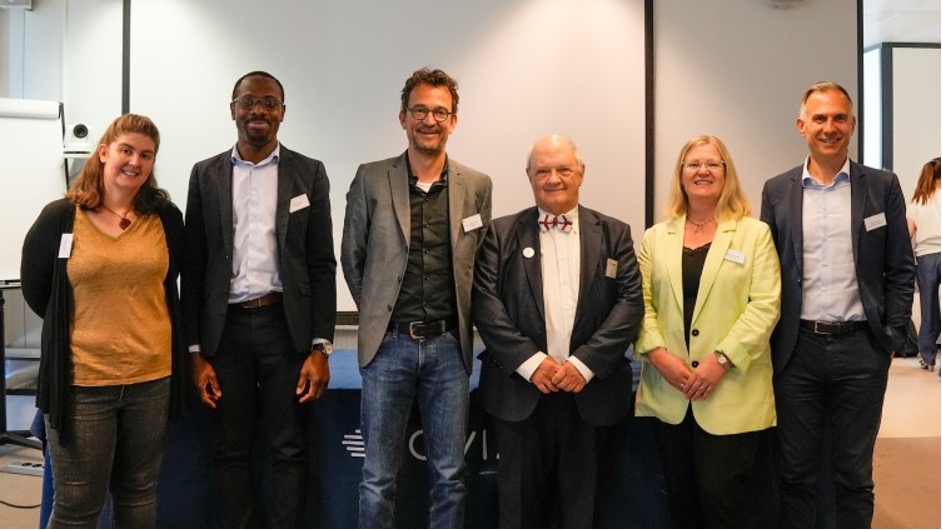


On May 16th, 2025, IQVIA brought together leading voices in the rare disease field for a high-impact seminar. The event featured expert contributions from patients, CHU Liège, Sciensano, the Rare Disease Diagnosis Alliance (RADDIAL), Takeda, Pharma.be, and moveUP. Through patient testimonial, policy overview, technological innovations and databases access insights, the seminar highlighted the urgent need for collaboration to improve diagnostic pathways and patient outcomes. This report captures the key discussions and forward-looking perspectives shared during the event.
Alicia Waterkeyn from the Rare Disease Diagnosis Alliance (RADDIAL) highlighted the significant challenges rare diseases pose in Belgium. Patients often face long diagnostic journeys, averaging 5.6 to 7.6 years, with over 40% initially misdiagnosed and 7% consulting more than ten physicians before receiving an accurate diagnosis. This leads to substantial psychological burdens due to the fragmented healthcare system. RADDIAL aims to improve diagnosis and care through a policy memorandum with 12 recommendations, including improving awareness and knowledge, identifying red flags, screening for early detection, optimizing the role of expert centers, and implementing integrated care pathways. Advocacy efforts have led to government pledges for quicker diagnoses and directing patients to recognized expertise, with a new rare disease plan expected by year-end.
Guy Lippens, an expert-patient with Amyloidosis AL, co-creator of AmyBel, shared his personal journey with this condition, highlighting the insufficient awareness, the limited availability of clear and accessible patient information and the profound psychological impact of rare diseases. He emphasized the critical role of patient organizations in providing support, information, and a sense of community. His testimony underscored the need for the development of patient organization and quality information in Belgium.
Marjan Willaert from pharma.be discussed the evolving landscape of drug reimbursement. For orphan drugs, Belgium has a theoretical 180-day period to market (often underestimated), with patient organizations involved in CRM meetings since April 2025. New EU HTAR introduces joint evaluations to improve patient access, with implementation for orphan drugs scheduled for 2028. A new requirement for health economic analysis has been introduced, and the Belgian Health Care Knowledge Centre (KCE) published updated guidelines to support robust economic evaluations.
Dr. Adrien De Voegh’t, a Haematology specialist at CHU Liège, highlighted AI's potential in diagnosing and treating rare diseases. AI can analyze scans to classify cells predict mutations and support the choice of the best treatment aiding in accurate and personalized healthcare. Besides, generative AI can help to make better clinical trials. Nonetheless, in the context of rare diseases, AI faces some challenges due to the frequently changing definitions of these diseases. This underscores the potential for human-machine collaboration to enhance diagnostic and treatment processes.
Bob Moens presented moveUP, a platform using various technological solutions to enhance patient care, based on four pillars: patient adherence and satisfaction, health care profession engagement, better outcome, and data collection. The platform includes different systems, ranging from simple SMS reminder services over hybrid programs to fully automated digital companion apps. These systems facilitate remote monitoring, timely interventions, definition of AI-driven triggers and improved patient engagement.
Geert Van Gassen from Takeda Belgium emphasized the importance of Real-World Data (RWD) in understanding rare diseases. RWD provides essential clinical evidence from patient registries and electronic medical records, bridging the gap between clinical trial efficacy and real-world effectiveness. Collaborative health data ecosystems are crucial for improving data access and quality. He discussed the challenges in generating RWD, such as difficult access to patient data, data silos and discontinuity ensuring data quality, and navigating regulatory compliance. He highlighted the move towards collaborative health data ecosystems, which involve multiple stakeholders and aim to improve data access and quality, enable secondary data use, and support patient-centric approaches.
Marlène Jagut from Sciensano discussed the role of rare disease registries in advancing research and patient care. She explained how private sector may benefit from Sciensano diseases registries as well as the data governance and the flow from data request to reporting the analysis results. Standardized data collection methods are essential for consistency and reliability. The Central Registry of Rare Diseases (CRRD) collects data to understand disease prevalence, support research, and inform healthcare policies.
The seminar highlighted the importance of technological innovation, comprehensive data collection, and collaboration among stakeholders to improve the diagnosis, treatment, and support for rare disease patients in Belgium. The insights shared during the event provide a roadmap for addressing the current challenges and improving patient outcomes in the rare disease landscape.

